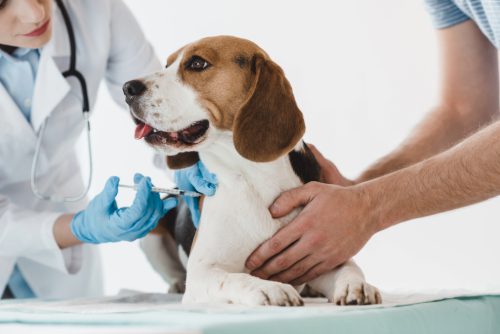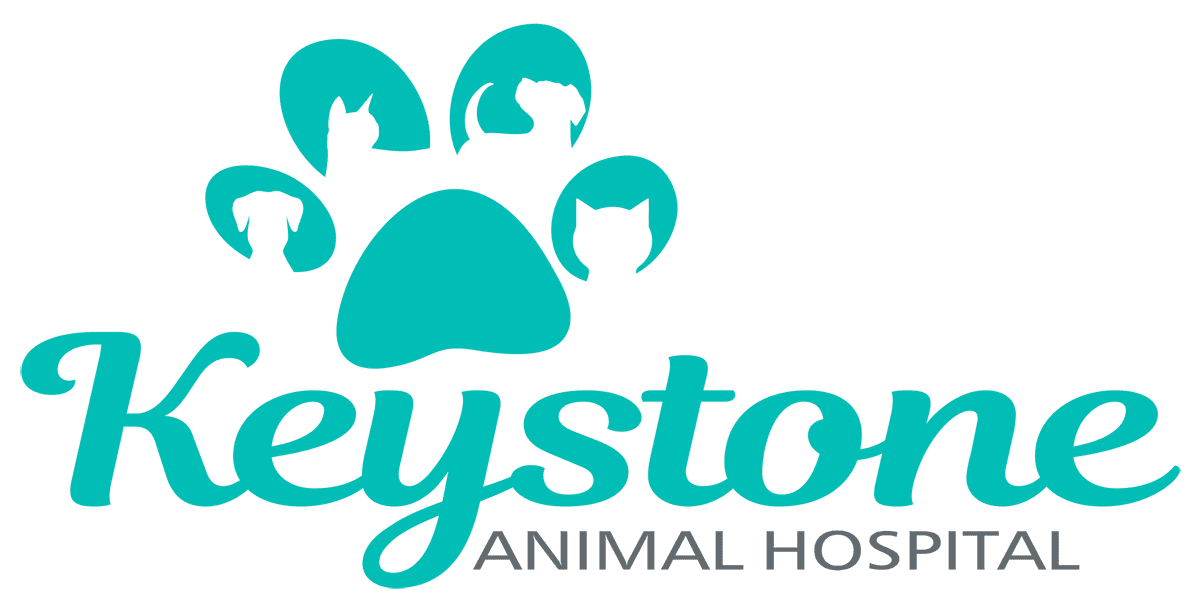Reasons Why Pet Vaccinations are Important
Vaccines do more than protect individual pets, they help create a healthier community for all animals. If you’re wondering why pet vaccinations are important, you’re not alone. Many pet owners have questions about vaccine schedules, potential side effects, and how these preventive tools actually work. Whether you’re bringing home a new puppy, adopting an older cat, or scheduling your pet’s annual checkup, understanding the role of vaccinations in veterinary care helps you make informed decisions. In this blog, we’ll cover the key reasons pet vaccinations are important, what diseases they prevent, and how staying current can safeguard your pet’s health and comfort. Call Keystone Animal Hospital in Bradenton, FL, at (941) 741-8445 to schedule your pet’s vaccine appointment or request a visit online today.

Why Pet Vaccinations Are Important for Long-Term Health
Vaccines are one of the most effective tools for preventing serious illness in both dogs and cats. They help your pet’s immune system recognize and defend against dangerous viruses and bacteria. When you vaccinate your pet, you’re providing them with the immunity needed to fight off potentially life-threatening diseases.
Routine vaccinations help prevent a wide range of illnesses that can cause severe discomfort, long-term damage, or worse. These include parvovirus, rabies, distemper, feline leukemia virus, and others. The immune system can’t always handle these diseases on its own, which is why vaccination plays such an essential role in protecting your pet’s health.
Vaccines Reduce the Risk of Preventable Diseases
Diseases like canine distemper or feline panleukopenia still exist, and they spread quickly, especially among unvaccinated pets. Pet vaccinations significantly lower the risk of infection and reduce the severity of illness if exposure does occur. This proactive step gives your pet the best defense against common and dangerous diseases.
Long-Term Cost Savings
Preventing disease is often far less expensive than treating it. Emergency care, extended hospital stays, or medications required for treatment can be costly. Staying on top of your pet’s vaccinations can help avoid those expenses and limit the risk of ongoing health complications.
What Core and Non-Core Vaccines Mean
Veterinarians classify vaccines into two categories: core and non-core. Understanding the difference helps explain why pet vaccinations are important for every individual animal’s needs and lifestyle. Core vaccines are recommended for all pets, regardless of where they live or what activities they participate in. These protect against the most severe and contagious diseases.
Core Vaccines for Dogs
- Rabies – Required by law in most states, this vaccine protects against a fatal disease that affects the nervous system and can spread to humans.
- Distemper – Affects multiple body systems and can cause lasting neurological damage.
- Parvovirus – A severe gastrointestinal illness, especially dangerous for puppies.
- Adenovirus (Hepatitis) – Causes respiratory and liver problems.
Core Vaccines for Cats
- Rabies – Just as important for cats as it is for dogs.
- Feline Herpesvirus – Leads to respiratory issues and chronic eye infections.
- Feline Calicivirus – Another upper respiratory virus common in multi-cat environments.
- Feline Panleukopenia (Feline Distemper) – A serious illness with high mortality, especially in kittens.
Why Non-Core Vaccines May Still Be Recommended
Non-core vaccines are based on your pet’s risk of exposure due to environment, lifestyle, and medical history. Although they aren’t needed for every pet, they’re still an important part of individualized care. Your veterinarian will recommend non-core vaccines if your pet is likely to come into contact with certain diseases.
Lifestyle-Based Vaccines for Dogs
- Leptospirosis – A bacterial infection that can spread to humans; common in areas with standing water or wildlife.
- Bordetella (Kennel Cough) – Important for dogs that visit daycares, groomers, or boarding facilities.
- Lyme Disease – Spread by ticks, especially relevant in wooded or grassy environments.
Non-Core Vaccines for Cats
- Feline Leukemia Virus (FeLV) – Recommended for kittens and cats that spend time outdoors or live with FeLV-positive cats.
Community Health and Legal Requirements
Vaccines also contribute to the overall safety of your local pet community. Rabies, for example, poses a public health risk due to its zoonotic nature as it can spread from animals to humans. That’s one reason why it’s required by law in many regions, including Florida. Vaccinating your pet helps prevent outbreaks, protect vulnerable animals, and support herd immunity in animal populations. When a high percentage of pets are vaccinated, the chances of disease spreading go down significantly.
Meeting Local Requirements
In Bradenton, FL, rabies vaccination is legally required for both dogs and cats. Keystone Animal Hospital follows state and local guidelines to ensure your pet’s vaccination schedule is current and compliant. During your pet’s wellness visit, our team can also provide updated documentation for daycare, grooming, or travel purposes.
Vaccine Safety and Side Effects
It’s natural to have concerns about your pet’s comfort and safety. Fortunately, veterinary vaccines go through rigorous safety testing. Most pets experience no side effects, but when they do occur, they’re typically mild and short-lived.
Common Mild Reactions
- Temporary soreness at the injection site
- Low-grade fever
- Fatigue for a day or two
- Mild swelling near the injection site
These side effects generally resolve on their own within 24–48 hours. More serious reactions are very rare but should be addressed immediately. If your pet experiences vomiting, swelling of the face, or difficulty breathing after a vaccine, contact your veterinarian right away.
When and How Often Should Pets Be Vaccinated?
The timing and frequency of vaccinations depend on your pet’s age, lifestyle, and medical history. Puppies and kittens require a series of vaccines starting at around 6–8 weeks of age, with boosters every few weeks until they’re about 16 weeks old.
Adult Pets and Booster Shots
After the initial series, pets need booster vaccines at regular intervals—often annually or every three years, depending on the vaccine. Your veterinarian will work with you to set a personalized schedule that meets your pet’s specific needs.
Importance of Staying on Schedule
Missing a booster could leave your pet vulnerable. Following the recommended timeline ensures your pet maintains protection throughout their life. If you’re unsure about your pet’s vaccine history, our team at Keystone Animal Hospital can review their records and recommend the right next steps.
How Vaccinations Support Overall Wellness
Vaccines are one part of a broader preventive care plan that includes regular checkups, parasite prevention, dental cleanings, and nutrition support. When your pet visits for vaccines, it also gives your veterinarian a chance to assess their overall health and catch any concerns early. This proactive approach helps maintain your pet’s quality of life and reduces the likelihood of unexpected health issues. It’s a win-win for both you and your pet.
Call Keystone Animal Hospital to Schedule Your Pet’s Vaccinations
Understanding why pet vaccinations are important empowers you to make smart, preventative choices for your pet’s well-being. From protecting against serious disease to fulfilling legal requirements and reducing long-term costs, vaccinations offer wide-reaching benefits. Our team at Keystone Animal Hospital is here to help you keep your pet on schedule with the right vaccines for their age, lifestyle, and health status. To schedule your pet’s vaccine visit, call (941) 741-8445 or request an appointment online. We’re proud to serve Bradenton pets and their families with trusted, compassionate care.
